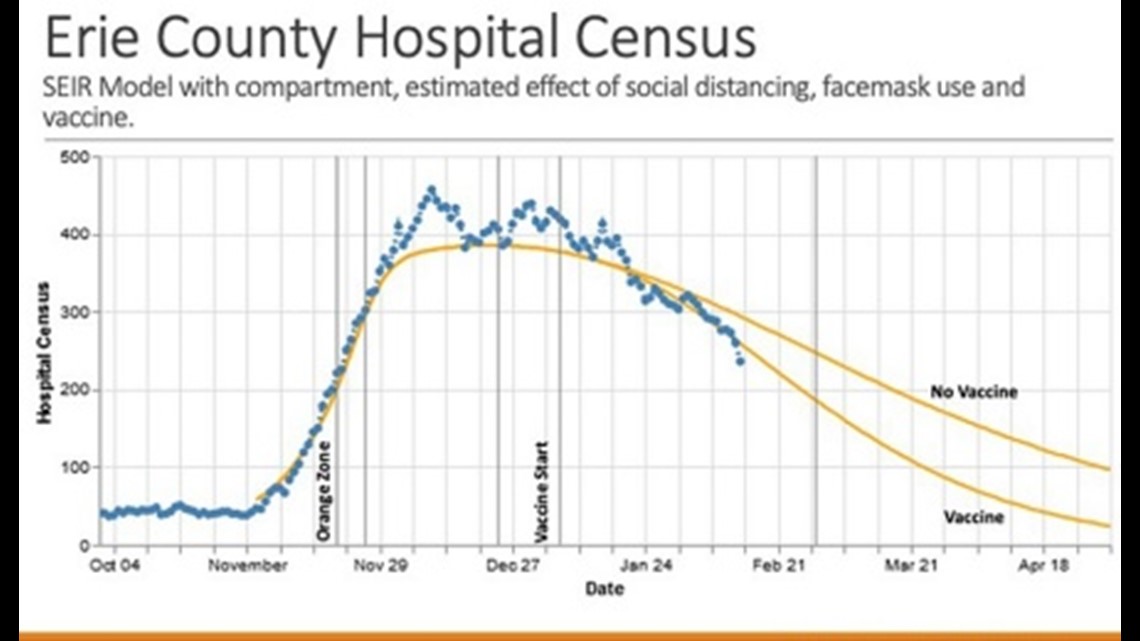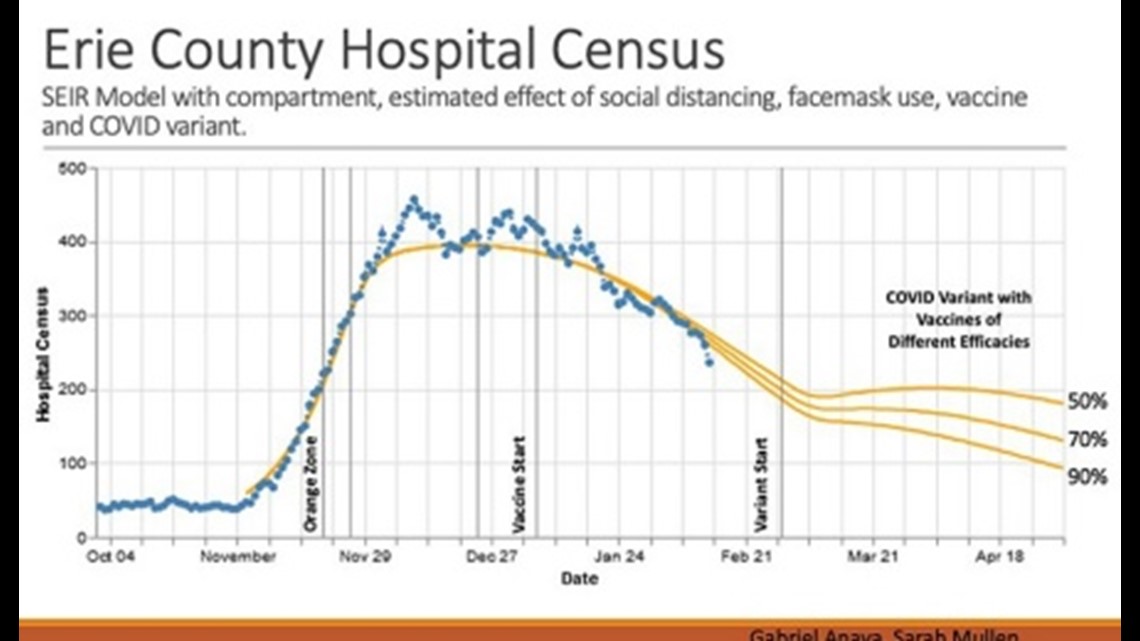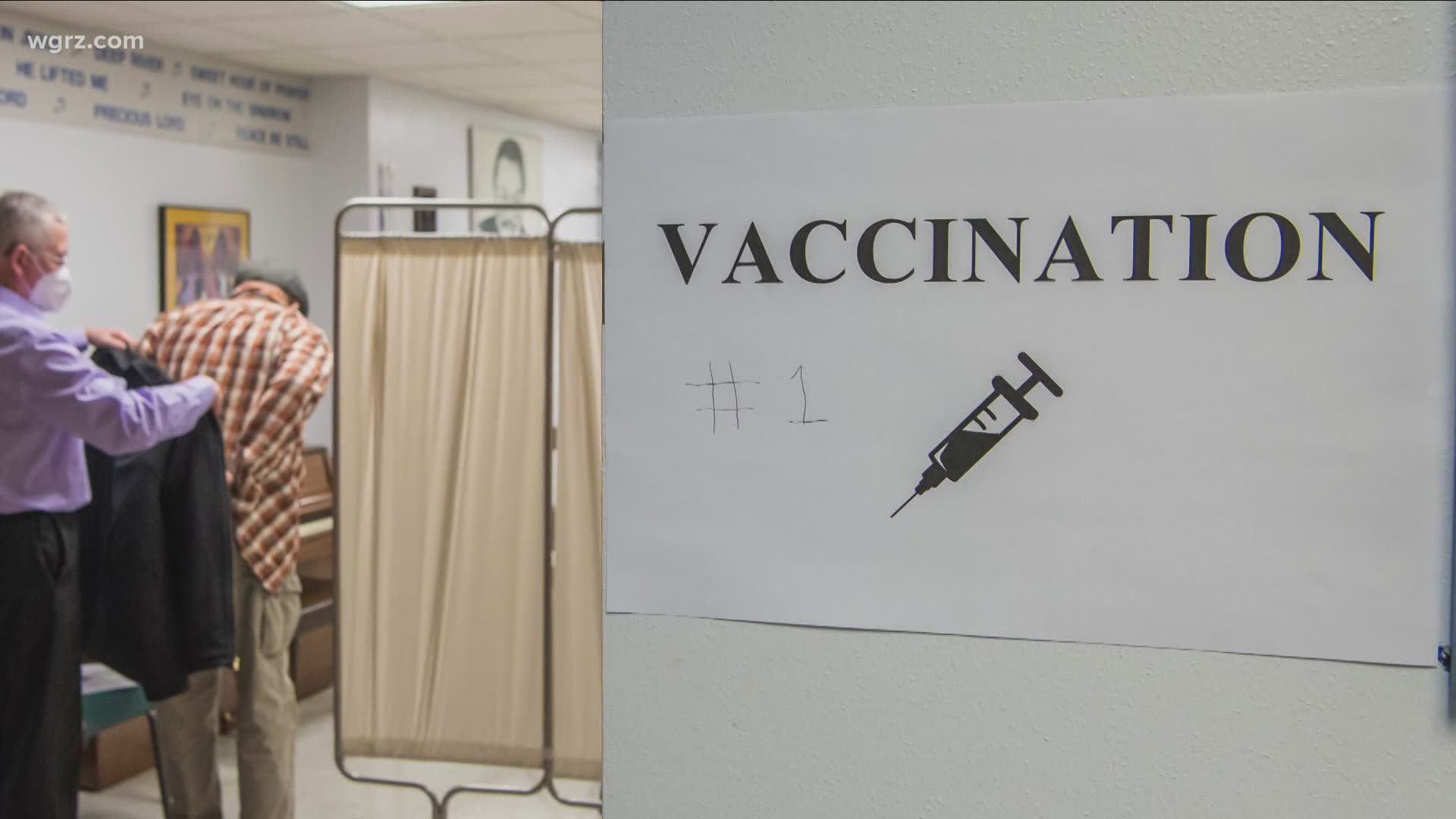BUFFALO, N.Y. — While the pacing of the coronavirus vaccine rollout may not be going as quickly as many people assumed it would be, new data from the University at Buffalo shows the vaccinations are already benefiting Western New York.
Dr. Peter Winkelstein, the executive director of UB's Institute for Healthcare Informatics, said his team has been modeling COVID-19 spread throughout the community since last March and their research is primarily focused on the number of patients in the hospital.
He told 2 on Your Side that for his team, the hospital census is the best measure of how much COVID infection is in the community.
"The most recent work we've done is that we've started to look at what effect both vaccines will have on the number of patients in the hospital and what effect a new, more transmissible variant might have on the number of patients in the hospital," Dr. Winkelstein said.
He believes their results are reasonably optimistic.
"If we can continue to vaccinate at a reasonable rate, what it looks like in our models is that the vaccines will more or less win, that the vaccines will keep the increase of infections from the variant to a very mild level. It will blunt the effect of the variant," Dr. Winkelstein said.
"The bad news is, yes, the variant is going to affect us. The good news is, the vaccines are going to blunt that effect and are really working for us."
Dr. Winkelstein told 2 on Your Side he was surprised that the vaccines gave a significant effect right away.
"It wasn't like we had to wait until we reached herd immunity in order for us to start to see an effect, but that we would see an effect early,' he explained.
The graphs below were included in a February 25 news release from UB. You can view the full release here.


This graph shows that even the current vaccination rate will reduce the number of patients hospitalized with COVID-19 by at least 10% by March 1. (Source: Gabriel Anaya and Sarah Mulin, University at Buffalo)


This graph shows that even with the UK variant, the vaccines, which are at least 50% effective against the variant—and the data suggest that they are likely more effective than that—will still reduce the impact on hospitalizations in Western New York. (Source: Gabriel Anaya and Sarah Mulin, University at Buffalo)
Dr. Winkelstein stressed that this research assumes people continue to be careful, following public health guidelines like wearing a mask, social distancing and avoiding gatherings as much as possible.
He added that he encourages people to be thoughtful as they decide whether or not to get the vaccine.
"I recommend it," Dr. Winkelstein said. "I believe the vaccine works. I believe it's safe. I believe it enough that I actually went and got it myself."

